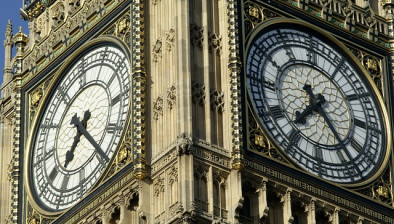NI Court of Appeal: Historical convictions quashed following CCRC reference

Northern Ireland’s Court of Appeal has quashed a man’s convictions for the murder of four British Army officers and membership of a proscribed organisation following its conclusion that the verdict reached in his 1976 trial was unsafe.

About this case:
- Citation:[2024] NICA 30
- Judgment:
- Court:NI Court of Appeal
- Judge:Lady Chief Justice Siobhan Keegan
Delivering judgment for the Court of Appeal, Lady Chief Justice Siobhan Keegan remarked that “the outcome we have reached in this case is highly fact specific. Considering the highly significant import of R v Latimer and having considered the fresh evidence the balance falls in favour of the appellant. It follows that in agreement with the CCRC assessment we consider that the fresh evidence might have led to a different result in the case given a key aspect of admitting the confession evidence was the credibility of the police witnesses.”
Background
In 1975, four British Army officers were killed and one injured when a landmine exploded in a field in Armagh. A solider reported seeing a man matching the appellant’s description running from the scene just prior to the explosion.
Fifteen minutes later, the appellant was stopped by army officers in a car that was not his, and he claimed that he had not heard the explosion as he had been buying paint. No paint was found in the car, but the appellant’s shoes were damp and he had fresh scratches on his forehead. The appellant’s car was examined and found to have a flat tire. He then admitted that he had heard the explosion while he was trying to change the wheel, stating that he had only lied to avoid arrest.
The appellant was arrested and was interviewed five times from 18–19 July 1975. At his trial in 1976, the appellant alleged that during his interviews the officers attacked and abused him, causing him to sign a false confession. The trial judge found that these allegations were not supported by the evidence and deemed the appellant’s confession admissible. He received a life sentence for murder of the officers with 30 years as the minimum period, and five years prison for membership of a proscribed organisation.
The appellant’s appeal was dismissed in 1977, and he continued to serve his sentence until his release on 5 March 1992. The appellant lodged an application with the Criminal Cases Review Commission (CCRC) in 2018 claiming that he was a victim of violence intended to coerce a confession in which he falsely admitted to the offences, that one of the officers attending his interview, DI Mitchell, staged evidence, and that the trial judge was biased resulting in him being denied access to military logs, medical evidence and witness statements in breach of his right to a fair trial.
The CCRC made a number of discoveries in the course of its investigation, including that multiple complaints of abuse had been brought against each of the four officers who interviewed the appellant, and that DI Mitchell had been found on appeal in R v Latimer, Hegan, Bell and Allen [1992] 1 NIJB 89 to have altered interview notes, weakening his credibility as a witness.
The appellant brought two grounds of appeal before the Court of Appeal — that his conviction was unsafe on grounds of mistreatment, and on grounds of the unreliable recording of confession evidence.
The Court of Appeal
Lady Chief Justice Keegan considered the case law relevant to the appeal, including the test for an unsafe conviction as set out in R v Pollock [2004] NICA 34 which requires the court inter alia to allow an appeal if, having considered the evidence, it has a significant sense of unease about the correctness of the verdict based on a reasoned analysis of the evidence.
Having heard the respective positions of the parties, the judge considered that it was “highly significant that the confession was taken at the fourth interview by DI Mitchell who was not present at the preceding interviews. He is a dishonest witness who would not have withstood scrutiny by the courts in 1975 or now due to his being found to falsify evidence.”
The court continued that “there were some obvious procedural failings as to how this confession was taken which make us question its veracity. As the appellant pointed out by Mitchell’s own admission, the confession was not immediately written down, but was rather presented in statement form in due course. This admission is exacerbated by the fact that DS McFarland and DC Hassan were present in the room. Despite the lack of contemporaneous recording, in Mitchell’s statement, Mr Thompson’s confession appeared in quotation marks.”
Confirming that there was now “cogent evidence” taken from the DPP’s files of ill-treatment by the other officers who were present at the appellant’s interviews, Lady Chief Justice Keegan considered that “this is akin to non-defendant bad character evidence” which on its own could not lead to a successful appeal, but in circumstances where similar allegations of bad character by way of similar instances of ill-treatment had been made by persons other than the appellant, this evidence could support the appeal.
Noting that it could not rewrite the trial judge’s findings on the medical evidence, the Court of Appeal considered that “the entire case takes on a different complexion once the admissibility of the confession is called into question”.
The court observed that “there is another element to this case which is interconnected namely the veracity of the confession given the unreliability of DI Mitchell. This case features objective and cogent evidence which discredits the police officer who took the alleged confession.”
Finding this “obviously highly significant”, the Court of Appeal opined:
“We feel sure that any judge faced with evidence of an officer who falsified confessions would look again at the case. That is because the trial judge’s conclusions that the police witnesses were ‘honest and truthful’ is undermined. The fact remains that in order to be satisfied beyond reasonable doubt that the appellant had not been illtreated, as well as considering the medical evidence, the judge had necessarily to rely heavily on his assessment of the police witnesses as being truthful and reliable.”
Lady Chief Justice Keegan emphasised that if all of the disclosed documents had been available at the time of the appellant’s trial, there is a “real possibility” that they would have enabled the defence to undermine the credibility of the prosecution witnesses by way of bad character evidence.
The judge continued: “If the defence had succeeded in undermining the credibility of two of the police witnesses who were at the appellant’s first three interviews and who are alleged to have perpetrated ill treatment upon him that would have affected the admissibility of the subsequent confession statement made to the police since on the appellant’s account that statement was made because of fear induced while he was in the custody of the police… Alternatively, if the statements had been admitted it would, have been open to the appellant’s counsel to explore these issues of bad character before the judge.”
Conclusion
Applying the test in R v Pollock, the Court of Appeal found the appellant’s convictions to be unsafe and quashed his convictions.
The King v Patrick Joseph Thompson [2024] NICA 30












